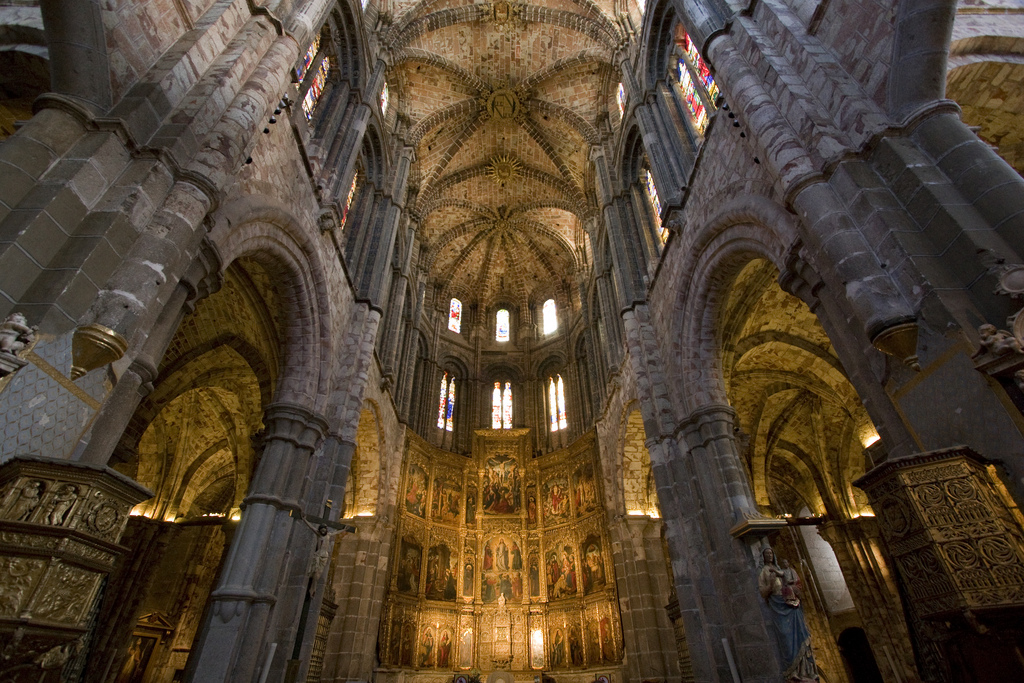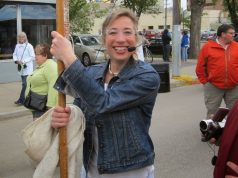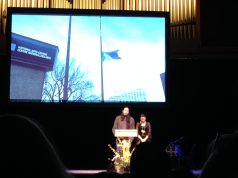
Are you a Cathedral Thinker?
Almost my entire career has been in some way in service to the arts and community.
Some of the most remarkable moments of my career have been those beautiful and intimate times when the arts have truly changed a life and made a connection – I saw it when the Vancouver Symphony Orchestra was in Port Hardy on Northern Vancouver Island and one of the local fisherman was so overwhelmed by the beauty of the Mozart Symphony that he could not contain himself and yelped after the first movement, or the Aboriginal children living in Churchill, Manitoba when they had a chance to hear and see a great artist perform on a Stradivarius Violin or when a Ballet BC artist connected with a young aspiring dancer in their Dance Studios in the heart of Vancouver’s Downtown East Side.
I think it was about 8 years ago when I began to become drawn to the exploration of the value and role Arts and Culture play in developing and strengthening communities. Through my involvement with leaders across Canada and with organizations such as the Canada Council for the Arts and Community Foundations, I began to witness a seed change in the conversation – it was far less about the economic impact and more about the intrinsic impact the Arts have in engaging and strengthening community.
Inspired by a study in 2010, called Counting New Beans from the Theatre Bay Foundation in San Francisco – it was no longer about the economic generator. I don’t want to waste your time with all of the findings and valuable information in the study but encourage you to read it for yourself.
I was inspired by one particular comment by the Artistic Director of the Steppenwolf Theatre in Chicago, Martha Lavey – Martha said that; “The presiding metaphor that we use at the Theatre, is that we are a Public Square that is activated by the work on our stage”.
I love that quote – it put it all in perspective for that is what the Arts has the power to achieve – to be that facilitator and leader of discussion, debate and thought provoker for every community.
With that inspiration in place we need to be building long term intrinsic relationships with our community using the work we produce to truly build, strengthen and inspire our neighbourhood’s, cities and regions.
We need to be building our relationships and value and make the investment today for the benefit of generations to come.
Some time ago I was introduced to the concept of Cathedral Thinking.
The notion stretches back through the centuries to medieval times, when architects, stonemasons and artisans laid plans and began construction of the soaring, cavernous structures that served as places of worship, community gathering spaces and safe havens.
Since then, the concept has been applied to space exploration, city planning and other long-term goals that require decades of foresight and planning so future generations can enjoy their full realization.
Though there are many instances to which Cathedral Thinking can be applied, they all require the same foundation: a far-reaching vision, a well thought-out blueprint, and a shared commitment to long-term implementation.
In Vancouver, we in the theatre community have decided that the we need to take responsibility for the kind of community and practice we want – not only for ourselves but for the future theatre artists, audiences and regions where we live work and play.
To that end, coming out of a local Theatre Conference called Making a Scene, the theatre community is developing a “Master Plan” for Theatre in Vancouver – the intention is to create a blueprint that every member, participant and supporter of our community can take responsibility and ownership in the future of our Theatre practice and ensure that there are the resources and willingness to sustain the sector.
We are taking a five pillar approach:
- Governance and Policy – to develop a framework that community can work within to ensure that our practice continues to develop;
- Artistic Development – to continuously advance the artistic and creative direction of our practice;
- Relevance – to remain relevant and reflective of the communities we serve which includes a diverse practice;
- Communication – to communicate and advocate for the work of our community to our public;
- Infrastructure – to ensure that the appropriate environment of space and human resources are appropriate to sustain and grow our practice.
The commitment of a diverse representation of our community is in the early stages of designing the structure and processes that will lead to the Master Plan. This group are the Cathedral Thinkers – as the plan develops and begins to become embedded in the ongoing practice and ecology of the Theatre Community, the benefits of this work will reach far into the future and the success of it will continue to be felt for many generations.









